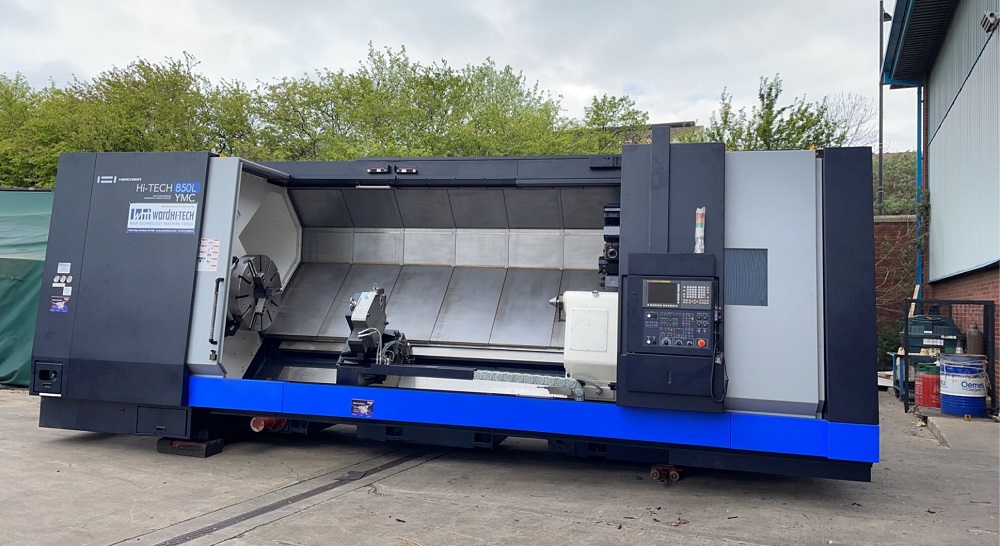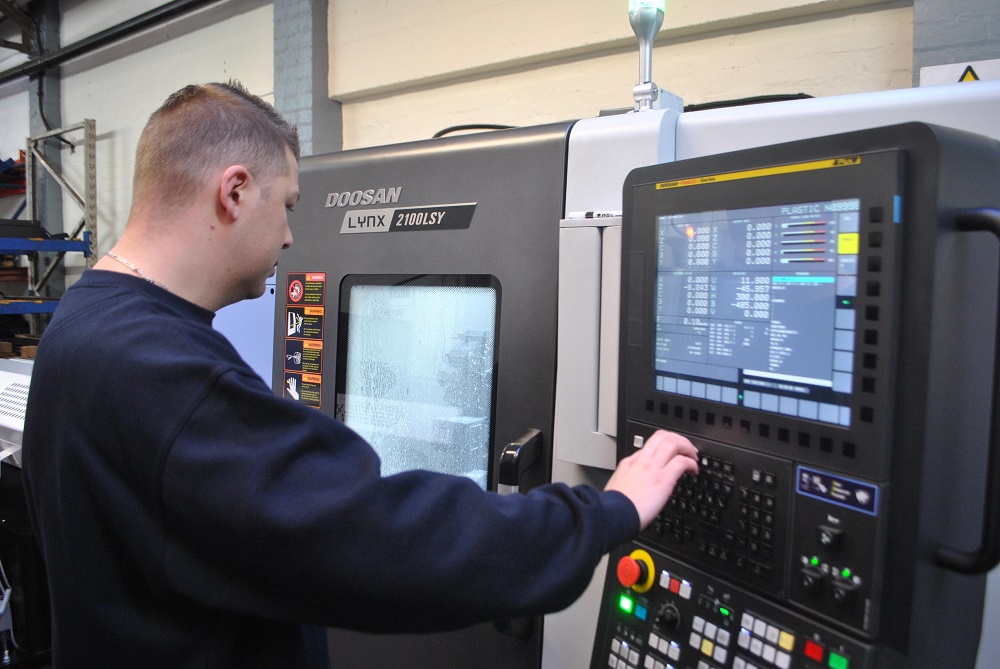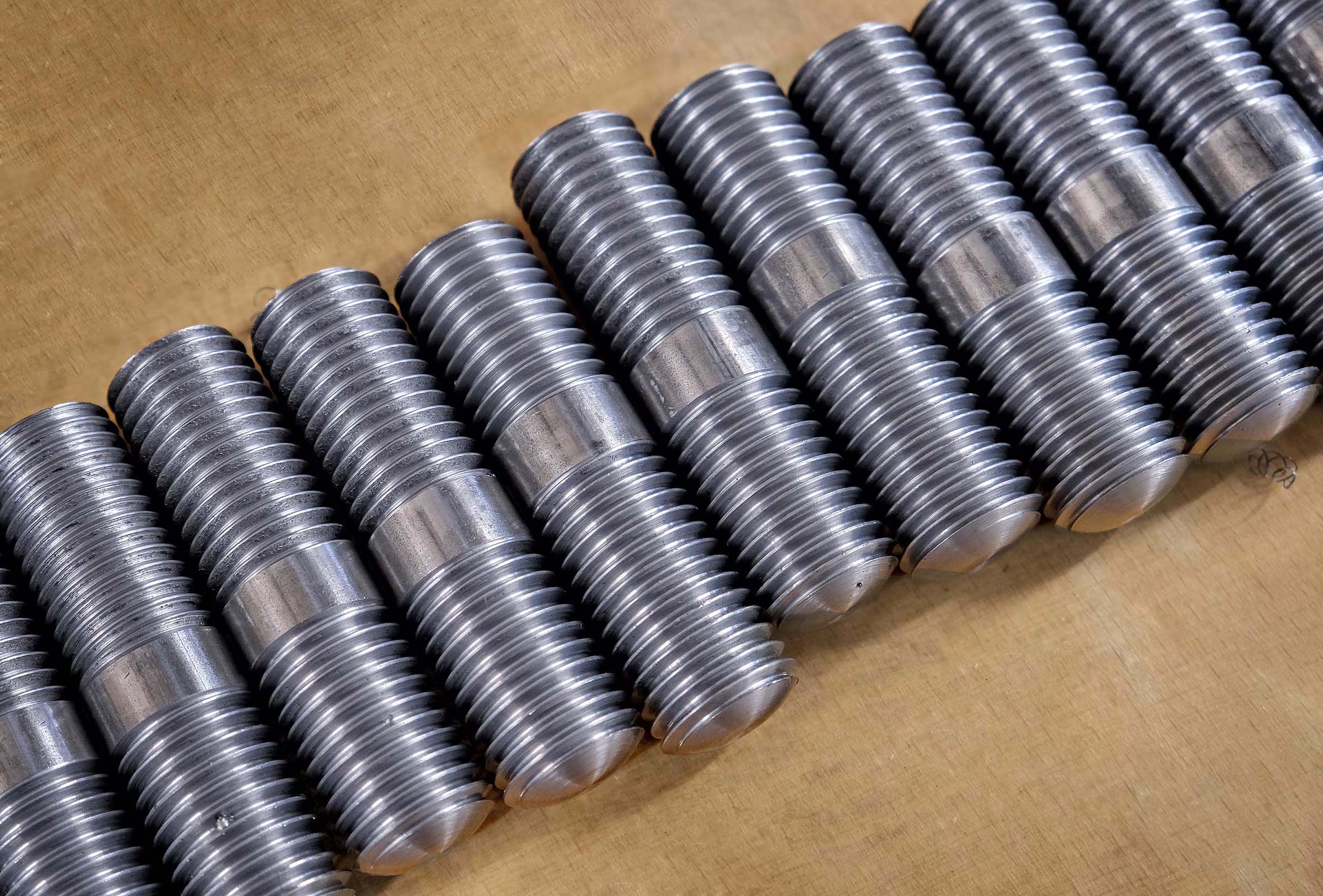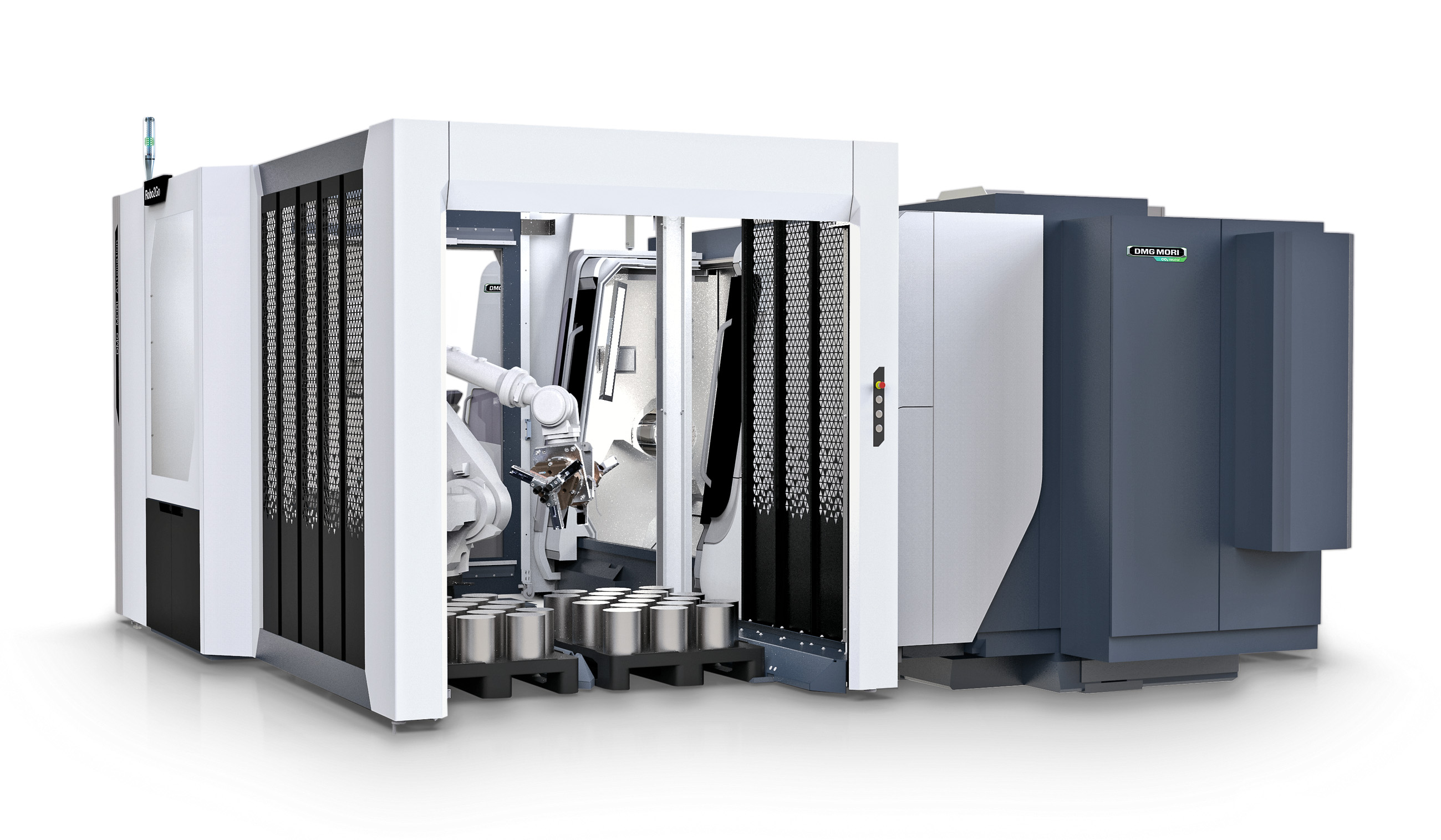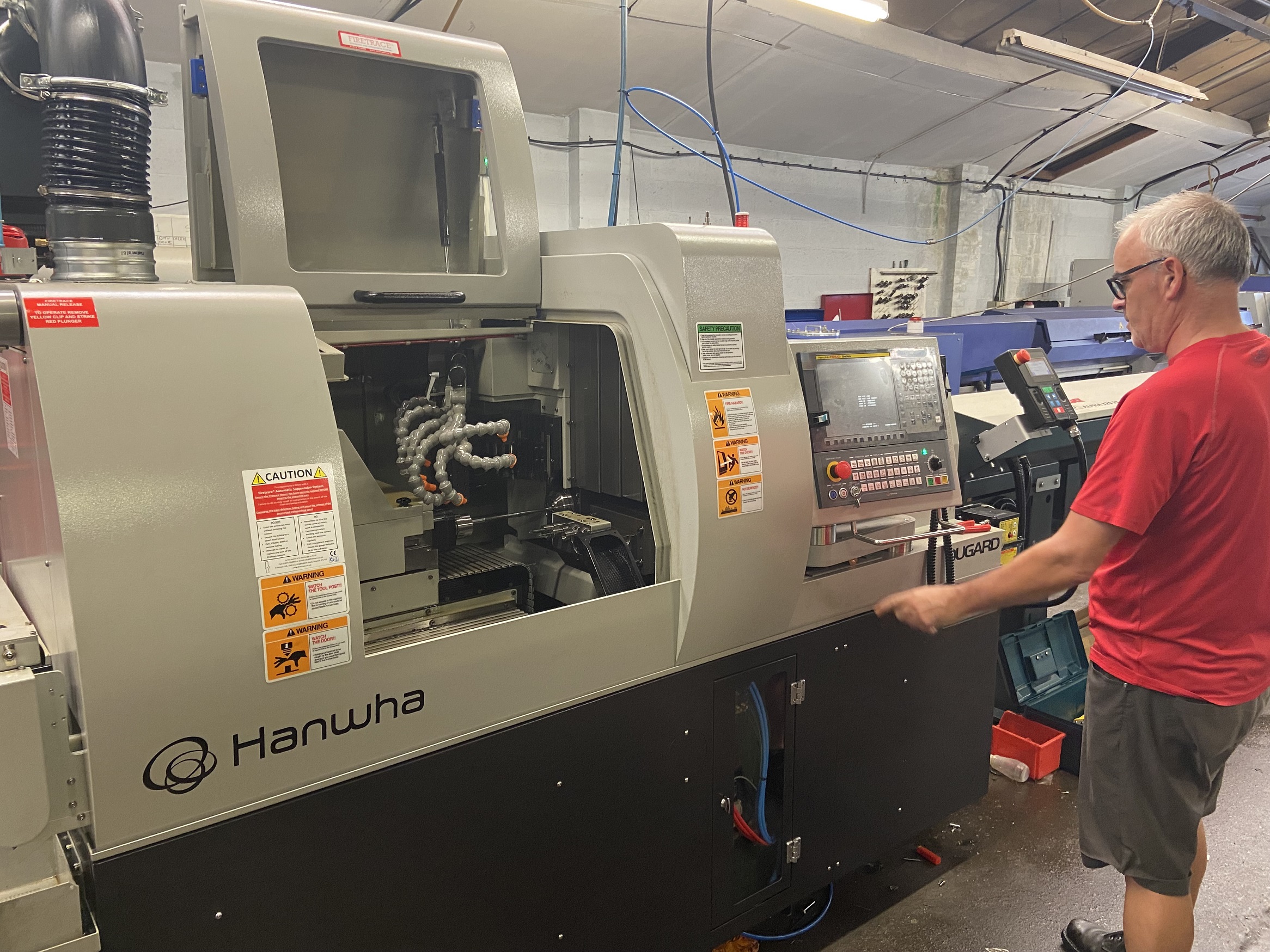MacIntyre Chocolate Systems, located in Scotland, is a worldwide supplier of chocolate manufacturing and processing equipment – offering ancillary equipment for chocolate manufacture that includes transfer pumps, filters and storage vessels. After agreeing a purchase on a new Hwacheon Hi Tech 850LYMC, Ward Hi Tech’s high levels of stock meant that the company was not waiting for long.
Managing director Joe Gorman says: “Purchasing the new Hwacheon Hi Tech 850LYMC allowed us to remove the risk of external supply chain, price pressure from market volatility and the need to monitor external quality for being ‘right first time’. We now have the ability to turn-mill our main drive shafts, pressure-adjust shafts, pressure sleeves and many other components on one machine.This new capability will drive us to become even more efficient – via improved cycle times – compared to ourprevious machine tools. The new Hwacheon Hi Tech 850LYMC will also give us the capability to offer an internal supplier solution to group partners based in Germany.”
As well as increasing productivity, the Hwacheon Hi Tech 850LYMC meant that where there was a need for three machine tools to cut parts – now only oneis necessary. This provides MacIntyre Chocolate Systems with a long-term cost effective solution.
“The onsite and offsite training sessions were first class and the installation was very quick and professional,” says Gorman.“This allowed us to moveseamlessly into full production.”
The Hwacheon Hi Tech 850 LYMC is a horizontal turning centre suited to large and hard workpieces. According to Ward Hi-Tech, the machine allows users to master demanding machining tasks that require large milling and turning operations.
For further information www.wardhitech.co.uk






